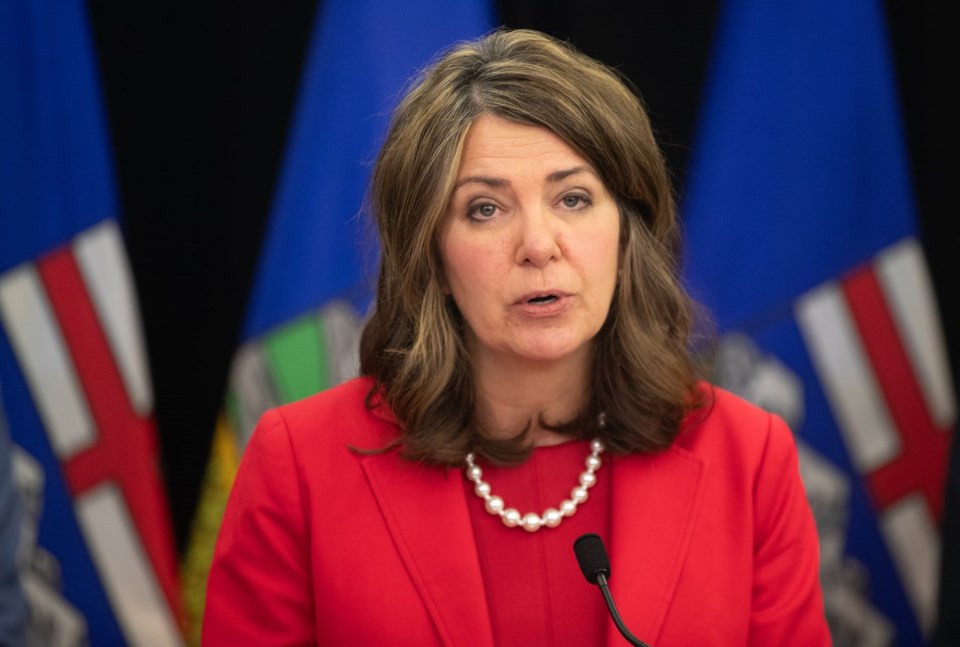EDMONTON — Alberta Premier Danielle Smith says the province plans to opt out of the federal government's dental care plan by 2026.
In a Tuesday letter to Prime Minister Justin Trudeau, Smith says the program infringes on provincial jurisdiction.
She says in the meantime she wants to negotiate getting Alberta's share of the federal funding so the province to expand dental care coverage as it sees fit.
"Alberta has long maintained that it would be more effective to expand existing provincial programs than to introduce a new federal plan," Smith wrote in the letter, saying that about 500,000 Albertans already benefit from provincial coverage.
The federal program — set to cost $13 billion over five years — began covering seniors in May and is being expanded to all those under 18 and people with disabilities beginning Thursday.
Previously, children under 12 were covered by an interim benefit, which is being phased out this month as the new coverage kicks in.
Alberta Health Minister Adriana LaGrange's office said in a statement the Canadian Dental Care Plan duplicates coverage provided by Alberta’s low-income dental programs.
"Alberta urged the federal government to work with the provinces to improve existing dental coverage, but they chose to proceed with this new program anyway," said press secretary Andrea Smith.
Christopher Aoun, press secretary to federal Health Minister Mark Holland, said in a statement more than 100,000 Albertans have already signed up to the plan, and across the country 200,000 Canadians have accessed dental services under it.
Speaking on CBC's Power and Politics on Wednesday, Holland said the federal program aims to cover those who weren't getting dental care under Alberta's plan.
"These are people who would wind up in emergency rooms with preventable illnesses," he said, accusing Smith of playing politics with people's well-being.
"It seems to me that picking this way of going about it seems to be trolling for conflict, and I don't think that's helpful," he said.
Provinces can opt out, but they need to provide coverage equal to or greater than that of the federal plan.
"If they can do it better, then I want to work with them. I'm not looking for fights — we're looking for solutions," Holland said, praising LaGrange for her work in other bilateral health agreements.
Participating in the federal program is voluntary, and about 40 per cent of dentists in Alberta have signed up for the program.
The Canadian Dental Association has been sparring with the federal government over the details, saying confusion over what's covered and who qualifies has added extra pressure at dental offices and undermines patient care.
The Alberta Dental Association said dentists are concerned that without further details from the province, Smith's decision to opt out makes an already complex situation even more confusing for patients and dentists.
"There's a lot of uncertainty," said president-elect Dr. Hans Herchen said of the Canadian Dental Care Plan. Those with employer-provided dental benefits could get swapped to the federal plan by companies looking to save on premiums.
Herchen said Smith's decision presents an opportunity to modernize Alberta dental plans that haven't been updated in almost 10 years.
"There's a plan in place for the low-income patients in Alberta that does not allow for them to get the best possible dental care due to the funding, and we can now resolve that problem," he said.
Alberta Opposition New Democrat health critic Luanne Metz said some Albertans have coverage, but many, including seniors and children, do not.
"Smith needs to put aside her beef with the federal government and start caring about you. This is the right thing to do. Give us the dental plan that we need," she told reporters in Edmonton.
Metz said there may be flaws in how the federal program has been rolled out and communicated, but they can be fixed.
"That does not mean that we should deny people the benefits of the program."
This report by The Canadian Press was first published June 26, 2024.
Lisa Johnson, The Canadian Press

